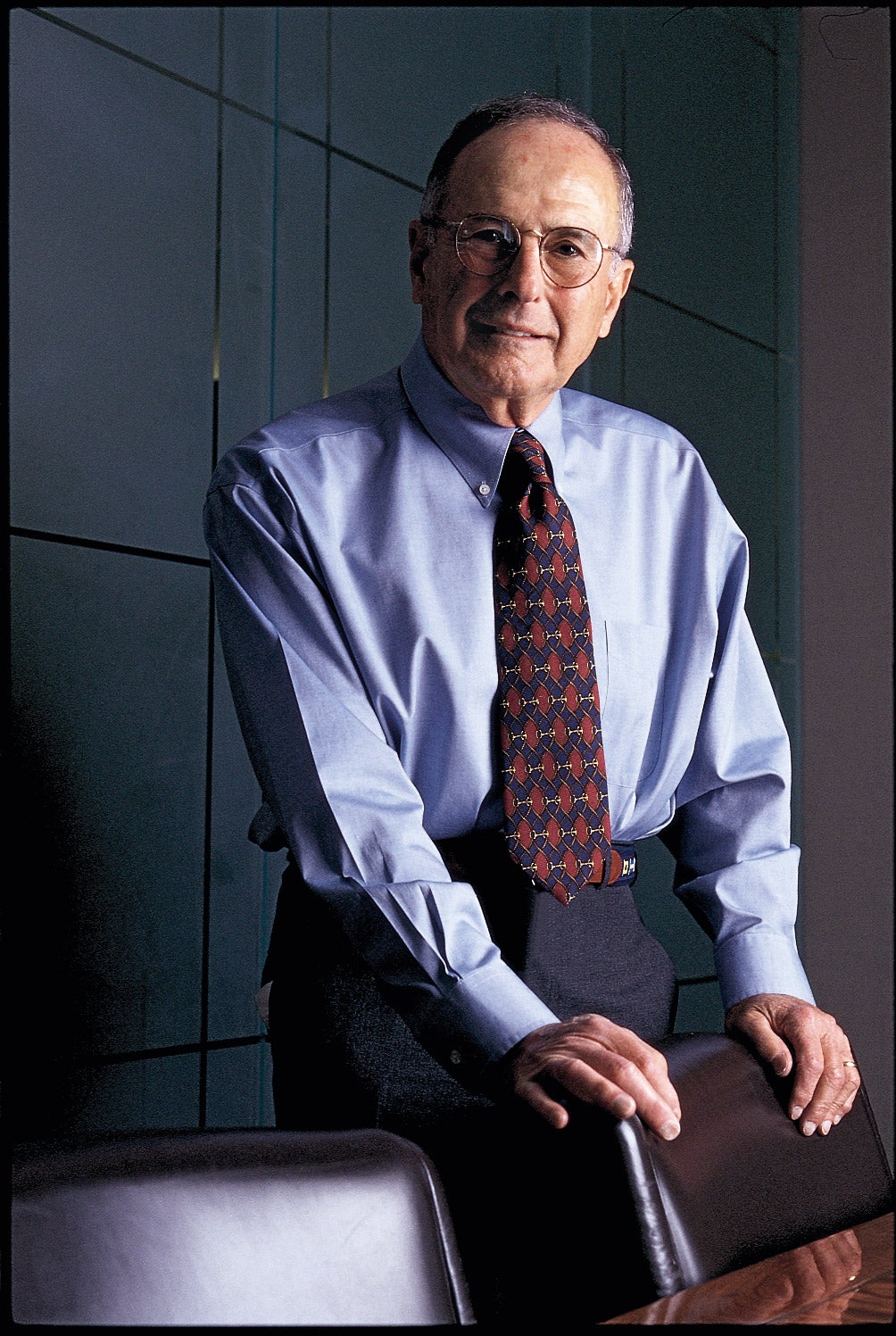Howard Aibel ’51 recently retired as a partner of LeBoeuf, Lamb, Greene & MacRae. Previously he served for 28 years as ITT Corporation’s general counsel, and prior to that he was internal antitrust litigation counsel at General Electric. He began his career as an associate at White & Case.
You’ve had a great deal of experience working as internal counsel for big companies. What are the some of the advantages that come with being on the inside?
Company counsel can have a really positive influence on corporate business practices. Many people have this “Wild West” idea of what business is all about–the caricatures in the movies of tycoons who throw their weight around and act as though they’re next to God. But, in fact, most people I’ve known in business want to act appropriately. They want to be law abiding. Sure, there are pressures on them to succeed, and sometimes there is temptation to cut corners. That’s where an inside lawyer can be a wise counselor. “How would you like to see what you’ve just done published on the front page of the New York Times? How would you feel if you were called before a congressional committee and asked to explain what you did in this situation?”
You’re now specializing in alternative dispute resolution. How did you get into this?
I got into ADR early in my career as general counsel of ITT because one of the first things I had to deal with was a huge budget for litigation. And as I looked at some of the cases, I realized that these were cases that should be settled. Even if we won a particular case, we’d still spend an enormous amount of money when we could probably settle the case for a relatively small percentage of our litigation costs. So I started training the lawyers in the law department in negotiation. It was at a time when Roger Fisher ’48 was just starting his Project on Negotiation. Getting to Yes was getting a great deal of publicity; it was doing very well in the bookstores. Roger undertook several training sessions with us, which was really a wonderful experience.
Do you think ADR is an enhancement or a repudiation of the current legal system?
By any measure, ADR has been a positive development. Derek Bok ’54, some years ago, commented on the high costs, not only to the parties but also to society, of litigation and the increasing tendency of lawyers to bring every controversy into the courts. Bok urged that law schools, particularly the Harvard Law School, increase the opportunities for training in the use of the “gentler arts” as an alternative to litigation. The use of ADR saves valuable court resources and even enhances the civility of our society.
Was there anything you learned at HLS that was particularly valuable in your career?
What has had the most impact on my career is the “fact-skepticism” that was inculcated in the first year. Once you get into practice and you have the experience of relying on clients to tell you what the facts are, you realize that you’ve got to dig. You’ve got to dig deeper and deeper because people tell it the way they want it to be, not the way it really is. So “fact-skepticism” is one of those great skills we were taught as part of learning how to think like a lawyer.
In addition to thinking like a lawyer, do you have any advice for today’s graduates who are beginning their careers?
I still feel that the best experience a recent law graduate can have is to get into a job where he or she has the opportunity to be mentored. Law firms are getting pretty good at this. Large firms, in particular, are starting to see that in order to get anything out of the younger lawyers, they have to mentor them in the skills that they may have been exposed to in law school but now really need to develop. That’s what young lawyers need.
